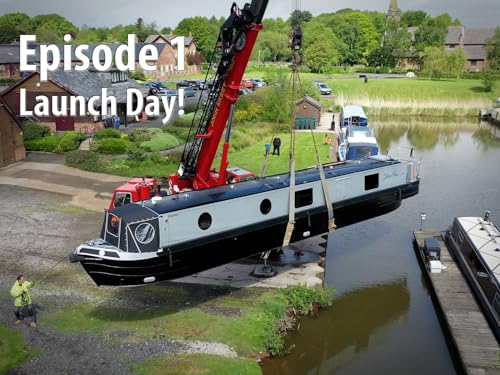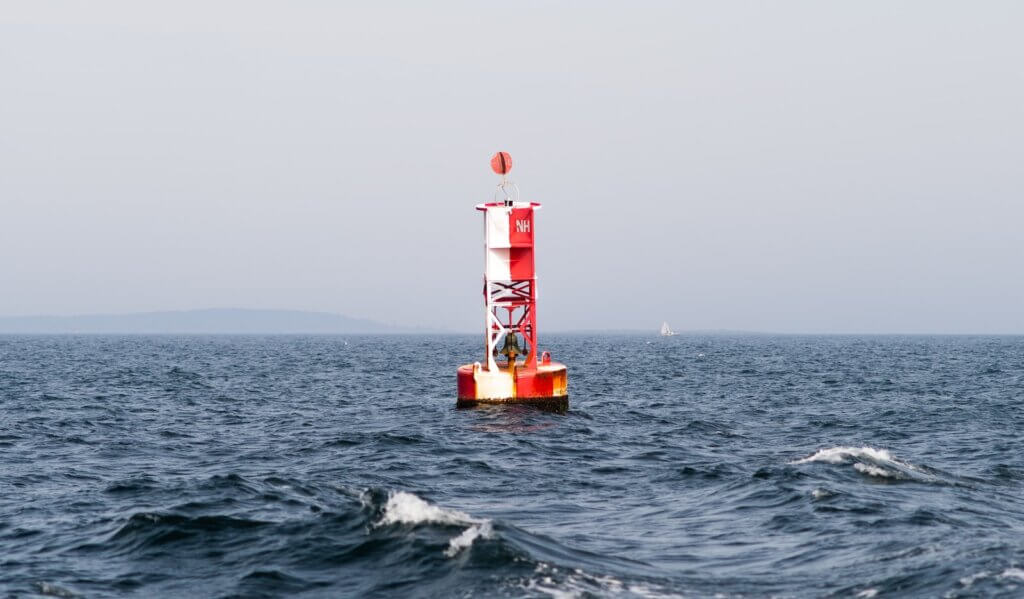Living on a boat offers the freedom to explore and the close proximity to nature. Enjoy cost savings and a minimalistic lifestyle. Discover the types of boats suitable for living and the essential features you need for a comfortable life on the water.
Benefits of Living on a Boat
Living on a boat offers a unique and rewarding lifestyle that comes with a plethora of benefits. From the freedom to explore and the close proximity to nature, to the cost savings and minimalistic lifestyle it encourages, boat living is an experience like no other.
Freedom to Explore
One of the greatest advantages of living on a boat is the freedom it provides to explore. Imagine waking up in a new location every day, surrounded by breathtaking views and endless possibilities. Whether you prefer cruising along the coast or anchoring in secluded coves, the choice is yours. With a boat as your home, you have the flexibility to travel at your own pace and discover hidden gems that are only accessible by water.
Close Proximity to Nature
Living on a boat also means being intimately connected to nature. Instead of waking up to the noise of traffic or the hustle and bustle of city life, you’ll be greeted by the gentle sound of waves and the serenity of the open water. You’ll have the opportunity to witness stunning sunrises and sunsets, observe marine life up close, and immerse yourself in the beauty of the natural world. The ever-changing scenery and the feeling of being at one with your surroundings create a sense of peace and tranquility that is hard to replicate anywhere else.
Cost Savings
Another advantage of living on a boat is the potential for significant cost savings. While the initial investment in a boat can be substantial, the ongoing expenses can be surprisingly affordable. Unlike traditional homeownership, there are no property taxes or mortgage payments to worry about. Monthly expenses such as utilities and maintenance costs are typically lower compared to living on land. Additionally, living on a boat encourages a simpler lifestyle, which means less spending on material possessions and unnecessary luxuries. By embracing a minimalist mindset, you can save money and focus on experiences rather than material possessions.
Minimalistic Lifestyle
Living on a boat naturally leads to a more minimalistic lifestyle. With limited space available, you’ll learn to prioritize the essentials and let go of unnecessary clutter. This can be liberating and freeing, allowing you to focus on what truly matters. The simplicity of boat living encourages a more intentional approach to possessions, leading to a sense of clarity and a greater appreciation for the things you do have. By embracing minimalism, you can create a living space that is both functional and aesthetically pleasing, maximizing every inch of your boat’s interior.
- Want to wake up to a new location every day? Check.
- Craving a closer connection to nature? Check.
- Looking to save money and simplify your life? Check.
- Ready to embrace a minimalistic lifestyle? Check.
Living on a boat offers all of this and more. It’s time to set sail and discover the incredible benefits that await you.
Types of Boats Suitable for Living
Living on a boat can be an exciting and adventurous lifestyle choice. Whether you want to sail the open seas or enjoy the tranquility of a houseboat on a calm lake, there are various types of boats that are suitable for living. In this section, we will explore four popular options: sailboats, motor yachts, houseboats, and narrowboats.
Sailboats
Sailboats are a classic choice for those seeking the freedom and romance of life on the water. With their elegant lines and reliance on wind power, sailboats offer a unique experience. These boats come in various sizes, from small day-sailers to luxurious cruising yachts.
One of the advantages of living on a sailboat is the ability to harness the power of the wind to explore new destinations. You can set sail and navigate the seas at your own pace, enjoying the thrill of being propelled by nature’s forces. Sailboats also offer a sense of self-sufficiency, as you rely on the wind and your sailing skills to move from one place to another.
However, it’s important to consider the limitations of sailboats. They are highly dependent on weather conditions, and calm winds can sometimes slow down your progress. Additionally, sailboats require some degree of sailing knowledge and skills to operate effectively.
Motor Yachts
For those who prefer a more luxurious and comfortable living experience, motor yachts are an excellent choice. These boats are equipped with powerful engines that provide speed and convenience. Motor yachts come in various sizes, ranging from compact cruisers to mega-yachts with multiple decks and luxurious amenities.
Living on a motor yacht offers the benefits of a floating home with the added advantage of being able to travel quickly and effortlessly. You can explore different destinations without worrying about wind conditions or the need for extensive sailing knowledge. Motor yachts also provide ample living space, often featuring multiple cabins, spacious living areas, and modern amenities.
However, it’s important to consider the higher costs associated with motor yachts. They consume more fuel compared to sailboats, which can increase the overall expenses of living on board. Maintenance and upkeep of the engine and other mechanical systems also require additional attention and investment.
Houseboats
If you prefer a more stationary lifestyle on the water, houseboats offer a unique and cozy living experience. These floating homes are designed to provide comfort and convenience while being permanently moored in a marina or on a calm river or lake.
Houseboats come in various sizes and designs, ranging from small and simple structures to larger, multi-level homes with all the amenities of a traditional house. They often feature spacious living areas, bedrooms, kitchens, and bathrooms, allowing you to enjoy a comfortable and self-contained living space.
Living on a houseboat allows you to be close to nature while still enjoying the comforts of home. You can wake up to the gentle rocking of the water, enjoy stunning views from your deck, and even have the option to fish or swim right outside your door. Houseboats are also a great option for those who prefer a more affordable and low-maintenance lifestyle on the water.
Narrowboats
For those seeking a more traditional and charming living experience, narrowboats are a popular choice in the UK’s canal network. These long and narrow boats were historically used for transporting goods and are now converted into cozy floating homes.
Narrowboats are typically designed for slow cruising along canals and rivers, offering a unique way to explore the countryside at a leisurely pace. They often feature compact yet cleverly designed living spaces, with sleeping quarters, a kitchen, a bathroom, and a cozy sitting area.
Living on a narrowboat allows you to immerse yourself in the peaceful and idyllic world of canal life. You can navigate through scenic waterways, pass through historic locks, and enjoy the sense of community among fellow boaters. It’s a lifestyle that encourages simplicity and connection with nature.
Essential Features for Living on a Boat
Living on a boat offers a unique and adventurous lifestyle, but it also requires certain essential features to ensure comfort and convenience. In this section, we will explore the key features that are crucial for a fulfilling boat living experience.
Spacious Living Area
When it comes to living on a boat, having a spacious living area is essential. While boats may be limited in terms of square footage compared to traditional homes, there are clever design techniques that can maximize the available space. Utilizing an open floor plan with multifunctional furniture and storage solutions can help create a sense of spaciousness. Additionally, incorporating large windows and skylights can bring in natural light, making the living area feel even more expansive.
Efficient Storage Solutions
One of the challenges of living on a boat is the limited storage space available. However, with efficient storage solutions, you can make the most out of every nook and cranny. Consider installing built-in cabinets, shelves, and drawers that can accommodate your belongings. Opt for furniture pieces that offer hidden storage compartments, such as ottomans or beds with storage underneath. Utilize hanging organizers, hooks, and baskets to keep things organized and easily accessible. By maximizing storage options, you can keep your living area clutter-free and functional.
Reliable Power Systems
A reliable power system is crucial for a comfortable and convenient boat living experience. While some boats may rely solely on shore power, others may have onboard generators or solar panels to provide electricity. It’s important to have a power system that can support your daily needs, including lighting, appliances, and electronics. Consider investing in energy-efficient appliances and LED lighting to minimize power consumption. Additionally, having a backup power source, such as a generator or extra batteries, can provide peace of mind during unexpected power outages.
On-Board Water Filtration
Access to clean and fresh water is vital for daily living, and having an on-board water filtration system is a must for boat dwellers. Depending on your boat’s size and layout, you can install various types of water filtration systems. Reverse osmosis systems are commonly used on boats to remove impurities and ensure safe drinking water. It’s essential to regularly maintain and replace the filters to ensure optimal performance. With a reliable on-board water filtration system, you can enjoy the convenience of having clean water for drinking, cooking, and showering without relying on external sources.
Living on a boat requires careful consideration of the essential features that can make your experience enjoyable and comfortable. By creating a spacious living area, utilizing efficient storage solutions, ensuring reliable power systems, and installing an on-board water filtration system, you can enhance your boat living experience. These features not only provide practicality but also contribute to the overall sense of freedom and minimalistic lifestyle that living on a boat offers.
Table: Essential Features for Living on a Boat
| Essential Features | Benefits |
|---|---|
| Spacious Living Area | Creates a sense of openness and comfort |
| Efficient Storage Solutions | Maximizes available space and keeps belongings organized |
| Reliable Power Systems | Provides electricity for lighting, appliances, and electronics |
| On-Board Water Filtration | Ensures access to clean and safe drinking water |
Considerations for Choosing a Liveaboard Boat
Living on a boat offers a unique and adventurous lifestyle, but choosing the right boat to call home requires careful consideration. From size and layout to maintenance requirements, navigational capabilities, and mooring options, there are several factors to keep in mind. In this section, we will explore these considerations to help you make an informed decision.
Size and Layout
When choosing a liveaboard boat, size and layout play crucial roles in ensuring comfort and functionality. The size of the boat will depend on your personal preferences, the number of people living on board, and your intended use. Larger boats often offer more living space and storage options, while smaller boats may be more maneuverable and affordable.
Consider the layout of the boat as well. Look for a design that maximizes living space, provides privacy when needed, and offers storage solutions. A well-designed layout will make it easier to navigate the boat and create separate areas for sleeping, eating, and relaxing. Some boats even feature convertible spaces that can adapt to your changing needs.
Maintenance Requirements
Owning a liveaboard boat comes with maintenance responsibilities. Before making a decision, it’s important to consider the maintenance requirements of different types of boats. Some boats may require more frequent maintenance, while others may have specific maintenance needs due to their construction or age.
Regular maintenance includes cleaning, checking the engine, inspecting the hull, and ensuring all systems are in proper working order. It’s essential to keep up with these tasks to ensure the safety and longevity of your boat. If you’re not experienced in boat maintenance, you may need to budget for professional help or invest time in learning the necessary skills.
Navigational Capabilities
One of the joys of living on a boat is the ability to explore various waterways and destinations. Therefore, considering the navigational capabilities of your liveaboard boat is essential. Different boats have different strengths when it comes to handling various conditions and water types.
If you plan to navigate coastal waters or venture into open seas, you’ll need a boat with good stability, seaworthiness, and the ability to handle rough conditions. On the other hand, if you prefer inland waterways or rivers, a boat with a shallow draft and maneuverability may be more suitable.
Take into account the type of propulsion system the boat has. Sailboats, for example, rely on wind power, while motor yachts utilize engines for propulsion. Each system has its advantages and considerations, so it’s important to choose one that aligns with your preferences and abilities.
Mooring Options
Mooring options are another crucial consideration when choosing a liveaboard boat. Where and how you plan to moor your boat will impact your daily life and accessibility to amenities. There are various mooring options available, each with its own advantages and considerations.
Marinas provide a convenient and secure place to moor your boat, often offering amenities such as electricity, water, and access to showers and laundry facilities. However, marina fees can be expensive, and availability may be limited in popular or remote areas.
Anchoring out in open waters or finding a mooring buoy can offer a more cost-effective option. This allows you to enjoy a more secluded and natural environment, but it may also require you to be self-sufficient in terms of power and water supply.
Additionally, consider the regulations and permits associated with mooring in different locations. Some areas may have restrictions on overnight anchoring or require permits for long-term stays. Researching and understanding these regulations will help you plan your liveaboard lifestyle more effectively.
Legal and Practical Considerations for Boat Living
Living on a boat can be an exciting and adventurous lifestyle choice, but it’s important to consider the legal and practical aspects before embarking on this unique journey. In this section, we will explore the key considerations that need to be taken into account when living on a boat. From licensing and registration to insurance requirements, waste management, and access to amenities, we will cover everything you need to know to make informed decisions and ensure a smooth boat living experience.
Licensing and Registration
Before you can start , it’s essential to understand the licensing and registration requirements. The specific regulations may vary depending on your location, so it’s crucial to research and comply with the local laws. In many countries, you will need to obtain a boat license or permit to operate a vessel. This typically involves passing a boating safety course and demonstrating your knowledge of navigational rules and regulations.
Additionally, you will need to register your boat with the appropriate authorities. This process usually involves providing documentation such as proof of ownership, proof of insurance, and identification information. Registering your boat ensures that it is legally recognized and allows you to operate it within the designated areas.
Insurance Requirements
Just like with any other valuable asset, it’s essential to have insurance coverage for your boat. Boat insurance provides financial protection in case of accidents, damages, or theft. The specific insurance requirements may vary depending on the size and type of your boat, as well as your location.
When choosing boat insurance, you should consider liability coverage, which protects you in case of damage or injury caused by your boat. You may also want to consider comprehensive coverage, which covers damages to your boat from various perils such as fire, theft, and storms. It’s important to review different insurance policies and determine the coverage that best suits your needs.
Waste Management
Proper waste management is crucial when living on a boat to minimize environmental impact and ensure a clean and healthy living environment. As a responsible boat dweller, you will need to familiarize yourself with the waste disposal regulations in your area.
Most marinas and boating communities provide waste disposal facilities for boaters. These facilities often include designated areas for trash disposal and recycling. It’s important to separate your waste accordingly and dispose of it in the designated bins. Additionally, some marinas may have pump-out stations where you can safely dispose of sewage from your boat’s holding tank.
Access to Amenities
Living on a boat doesn’t mean sacrificing access to essential amenities. Many marinas and boating communities offer a range of amenities to enhance the boat living experience. These amenities may include showers, laundry facilities, restaurants, grocery stores, and even Wi-Fi connectivity.
When choosing a marina or boating community to live in, it’s important to consider the availability and quality of these amenities. Having access to convenient facilities can greatly enhance your comfort and enjoyment while living on a boat. Additionally, being part of a boating community can provide opportunities for socializing, sharing experiences, and forming lasting friendships with fellow boat dwellers.
Living on a boat requires careful consideration of the legal and practical aspects involved. From obtaining the necessary licenses and insurance coverage to managing waste responsibly and ensuring access to essential amenities, these considerations are essential for a smooth and enjoyable boat living experience. By understanding and addressing these factors, you can embark on your boat living adventure with confidence and peace of mind.
Table: Marinas with Essential Amenities
| Marina Name | Location | Amenities |
|---|---|---|
| Harbor Marina | Miami, FL | Showers, laundry facilities, Wi-Fi |
| Bayview Marina | Seattle, WA | Restaurants, grocery stores, Wi-Fi |
| Sunset Marina | San Diego, CA | Showers, laundry facilities, Wi-Fi |
| Riverfront Marina | Chicago, IL | Restaurants, grocery stores, showers |
| Oceanview Marina | New York, NY | Showers, laundry facilities, Wi-Fi |
Living on a boat offers a unique opportunity to embrace a minimalist and adventurous lifestyle while being aware of the legal and practical considerations. By addressing licensing and registration requirements, obtaining proper insurance coverage, managing waste responsibly, and ensuring access to essential amenities, you can enjoy the freedom and tranquility of living on a boat. So, are you ready to set sail and embark on this extraordinary journey?
Tips for Living on a Boat
Maximizing Space
Living on a boat may present some challenges when it comes to space, but with a little creativity and smart organization, you can make the most of every square inch. One of the first things you’ll want to do is declutter and only keep essential items. Remember, the more items you have, the more cramped and cluttered your living space will feel.
To maximize space, consider investing in furniture that serves multiple purposes. For example, a sofa that can also be converted into a bed or a coffee table with hidden storage compartments. Utilize vertical space by installing shelves or hanging organizers on the walls. This will free up valuable floor space and help keep things tidy.
Another tip is to prioritize functionality over aesthetics. While it’s nice to have beautiful decor, it’s important to choose practical and space-saving items. Opt for collapsible or stackable kitchenware, foldable chairs, and tables that can be easily stowed away when not in use. Utilize the space under the bed or seating areas for additional storage.
Weather Preparedness
Living on a boat means being constantly exposed to the elements, so it’s essential to be prepared for various weather conditions. Before setting sail, always check the weather forecast and plan accordingly. Invest in good-quality foul weather gear, including waterproof jackets, pants, and boots, to stay dry and comfortable during rain or rough seas.
It’s also crucial to secure your boat properly in case of storms or high winds. Make sure you have sturdy mooring lines and fenders to protect your boat from damage. Additionally, familiarize yourself with storm protocols and emergency procedures, such as how to deploy storm sails or anchor properly.
Having a reliable communication system is vital for weather updates and emergencies. Consider installing a marine VHF radio or a satellite phone on your boat. These devices will allow you to stay connected with other boaters and emergency services, ensuring your safety and peace of mind.
Off-Grid Living Solutions
Living on a boat can offer a unique opportunity to embrace an off-grid lifestyle. While some boaters may choose to stay connected to shore power, others prefer the freedom and self-sufficiency of generating their own electricity. Solar panels and wind turbines are popular options for harnessing renewable energy on a boat. These systems can power your lights, appliances, and even charge your electronic devices.
Water supply is another important consideration when living off-grid. Installing an on-board water filtration system will allow you to have access to clean and safe drinking water. There are various filtration systems available, ranging from simple carbon filters to more advanced reverse osmosis systems. With a reliable water filtration system, you can reduce your reliance on shore-based water sources.
Community Engagement
Living on a boat doesn’t mean you have to isolate yourself from the world. In fact, the boating community is known for its camaraderie and support. Engaging with other boaters can enhance your experience and provide a sense of belonging.
One way to connect with the boating community is by joining local yacht clubs or marinas. These establishments often host social events, sailing races, and educational seminars. By participating in these activities, you can meet like-minded individuals, learn from experienced boaters, and form lasting friendships.
Social media platforms and online forums dedicated to boating are also great resources for connecting with other boaters. You can share your experiences, ask for advice, and even organize meet-ups with fellow boating enthusiasts. These online communities provide a virtual support network that can be invaluable, especially for those new to the boating lifestyle.
In conclusion, living on a boat offers a unique way of life, filled with adventure and freedom. By maximizing space, being prepared for various weather conditions, embracing off-grid living solutions, and engaging with the boating community, you can fully enjoy the benefits of boat living. So, embark on this exciting journey and let the waves be your guide to a fulfilling and rewarding lifestyle.










